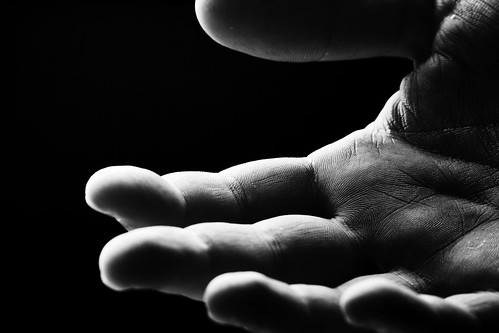a Response to Sam Harris' piece "Killing the Buddha"
 Creating a Kalachakra Sand Mandala in Kathmandu
Creating a Kalachakra Sand Mandala in Kathmandu
Killing the Buddha requires us first to have a concept of "Buddha." While "Buddha" is expedient, tentative (like the raft we use to cross the river of suffering), and is yet another concept to be abandoned, it is nonetheless an important exercise in humility to pay homage to our teachers.
I must admit that I am ambivalent about the idea that we should abandon religion, or perhaps, more violently, 'Kill Buddhism,' in the way that Sam Harris has written about it. It is not that I do not find this metaphor powerful, compelling, perhaps even 'correct,' in its own way and on its own terms.
Rather, the problem lies precisely here: That I must accept these very terms... As Harris has written,
"While it may be true enough to say (as many Buddhist practitioners allege) that “Buddhism is not a religion,” most Buddhists worldwide practice it as such, in many of the naive, petitionary, and superstitious ways in which all religions are practiced. Needless to say, all non-Buddhists believe Buddhism to be a religion—and, what is more, they are quite certain that it is the wrong religion."
There is a peculiar arrogance in assuming that all devotional practice or adherences to non-rational doctrines are somehow inferior in quality to the rationalist and materialist approach(es) espoused by Harris. It is also somewhat ironic (though completely understandable) that he is so pained by others' negative views of Buddhism
because of its religious associations, given that he is so quick to eschew association with Buddhism itself, for the sake of a non-sectarian, rationalist project.
However, as per any discourse on the emancipation either of minoritarian, marginalised and/or misunderstood communities, is incredibly problematic to assume that, simply because "all non-Buddhists believe Buddhism to be a religion," that it is therefore somehow strictly Buddhists' responsibility to correct these (mis-)perceptions. To be sure, to the extent that there ARE misperceptions about the MANY presentations of Buddhism 'proper,' it should indeed be the co-responsibility of Buddhist and non-Buddhist persons alike to engage and disspell these misperceptions. One option, which is the one Harris is suggesting (wise on its own terms), is to disconnect Buddhism (or the Buddha's teachings) from "religion," thus killing "Buddhism" per se.
Another option, which is one I would like to propose, is to question the way that Harris erroneously attributes certain characteristics to "religion" itself: Dogmatism, close-mindedness, irrationality, naivete etc.
It seems to me that the problem with religions (including religious Buddhists) has more to do with grasping onto doctrines/ritualism as it has anything to do with what the doctrines/rituals are themslves. But this problem is as much rife in the cultures of religious traditionalists and tribal/mythic-membership cultures, etc. as it is in rationalist cultures (particularly the one espoused by Harris, and the one he most certainly belongs to) whose worldviews are rooted in in a post-Abrahamic, secular physics and cosmology (in this case, the doctrine of the world ONLY as material, without transcendental substrate, and the heavily policed, anti-phenomenological rituals of rational debate).
In response to this problem, I employ a quintessentially Buddhistic dialectic.
The Buddha may well have taught: For those attached to irrationality, I teach rationality.
For those attached to rationality, I teach
Crazy Wisdom (or the employing of trans-rational means in order to jolt one into understanding, beyond rational argument).
(and, just for fun: For those attached to crazy wisdom, "Who is it who is attached to what wisdom?")
The distinction that Harris delineates, between contemplative science/rationality and religion, is illusory, particularly when we consider his criticism of religious people's/institution's dogmatism, a dogmatism shared by scientific materialist "leaps of faith", in the assumption that phenomenological events are reducible to material causes. At the height of a Buddhistic, "post-structuralist" rationalism, we can only conclude that all meditative/psychological/spiritual phenomena are at best, highly correlated with material
conditions (rather than causes)
... This is an important dialectical distinction which is, unfortunately by definition, absent from a reductive scientific materialist worldview... Many babies lost along with the bathwater here.
The distinction between science/rationality and religion is especially misleading when we consider Buddhism in its multiple forms, either preceding contact or contemporaneous with Western rationalism. This distinction may be especially dangerous if we consider the Buddhist goal of the emancipation of all living beings from suffering, a goal shared by Harris. I would agree that, given our current global cultural and historical climate, scientific and rational methodologies are some of the most superior (and indeed, powerful) ways of elucidating the truth of the way things are. I would suggest that all phenomena should indeed be subject to scientific methodological validation and rational scrutiny. However, I would simultaneously suggest that while scientific and material explanations for phenomena are important arbiters of any route to truth, they are methodologically distinct from the realm of ethics, phenomenology and hermeneutics, and that the conclusions derived from all the latter are best integrated into scientific study, rather than summarily dismissed. The dismissal would not be either the most effective, developmentally appropriate, nor wise way for all peoples at all times across all of history to engage the Truth of the way things are.
Sure, some folks may believe that Guru Rinpoche, or this or that Bodhisattva was literally born in a Lotus, and that these views may leave a whole lot to be desired... but 'literalism' is itself an invented demon of rationalism, perhaps a shadow of its own repressed drive to transcendence. It is important to note that a lot of secular, rational-minded folks also believe a whole ton of garbage from popular science writing, political manipulation, and unexamined privilege.
To reiterate:
Dogma and ignorance are no more exclusively in the province of religious tribal/traditionalist/mythic-membership societies as they are in secular scientific/rationalist ones.
The problem here is Dogma itself, and the corrupt institutions that sustain dogmatism, in all their guises; Rationality is one of the best tools for slicing through dogma, of course, but it can sometimes also be one of the ways that we reify dogmatic and oppressive systems in the name of ideology, particularly when we lack psychological and spiritual insight (think: the ‘logic’ of free markets, the slavery that is demanded from an aggressive and unfettered global capitalism, the violent Communist regimes of the Eastern bloc, the racist rationalism underpinning Nazism, etc. etc.).
I see the kind of Rationality that Harris heralds as similar to Nuclear Power. Developmentally, it is AWESOME as the most sophisticated route to knowledge/power in the whole history of humanity. In a sense, it has ‘always existed’ as potential, but we have lacked the necessary social and cultural foundations for it to become far more normative.
However, just like for Nuclear Power, it will take a while yet before we will be ready to understand the implications of wielding the power of Rationalism.
Rationalist institutions are young. And their members, like many young people, are full of a vigour, intellect, passion, and vision that is as admirable as it is (apparently) unsurpassable. But, if we compare this membership to those of the many institutions such as Buddhist monastic sanghas, erected over hundreds of generations in the wisdom traditions, rationalist institutions are barely in their infancy.
To extend the metaphor, on the one hand, I am in favour of youth empowerment. On the other hand, as an adult, I also see the ways that young people need to be socialised into spaces which help generate their own inherent wisdom to become leaders of their communities. This process of socialisation MAY involve the abolition of superstructures created by generations of Adults. Just as plausibly, it will also involve collaboration, synthesis, and mutual growth... What eventuates, inevitably, in that collaboration which is the joint project of young people and adults, is an order that will likely look nothing like what either of them had envisioned.
So I agree: "Buddhists" would best let go of the "Buddhism" or "Religion" we once knew, in allowance of the tremendous power and growth potential enabled by scientific and rational thinking. But Harris might want to note that what eventuates from this historic encounter may not look anything like the dogma of Rationalism he clings so tightly onto either.





